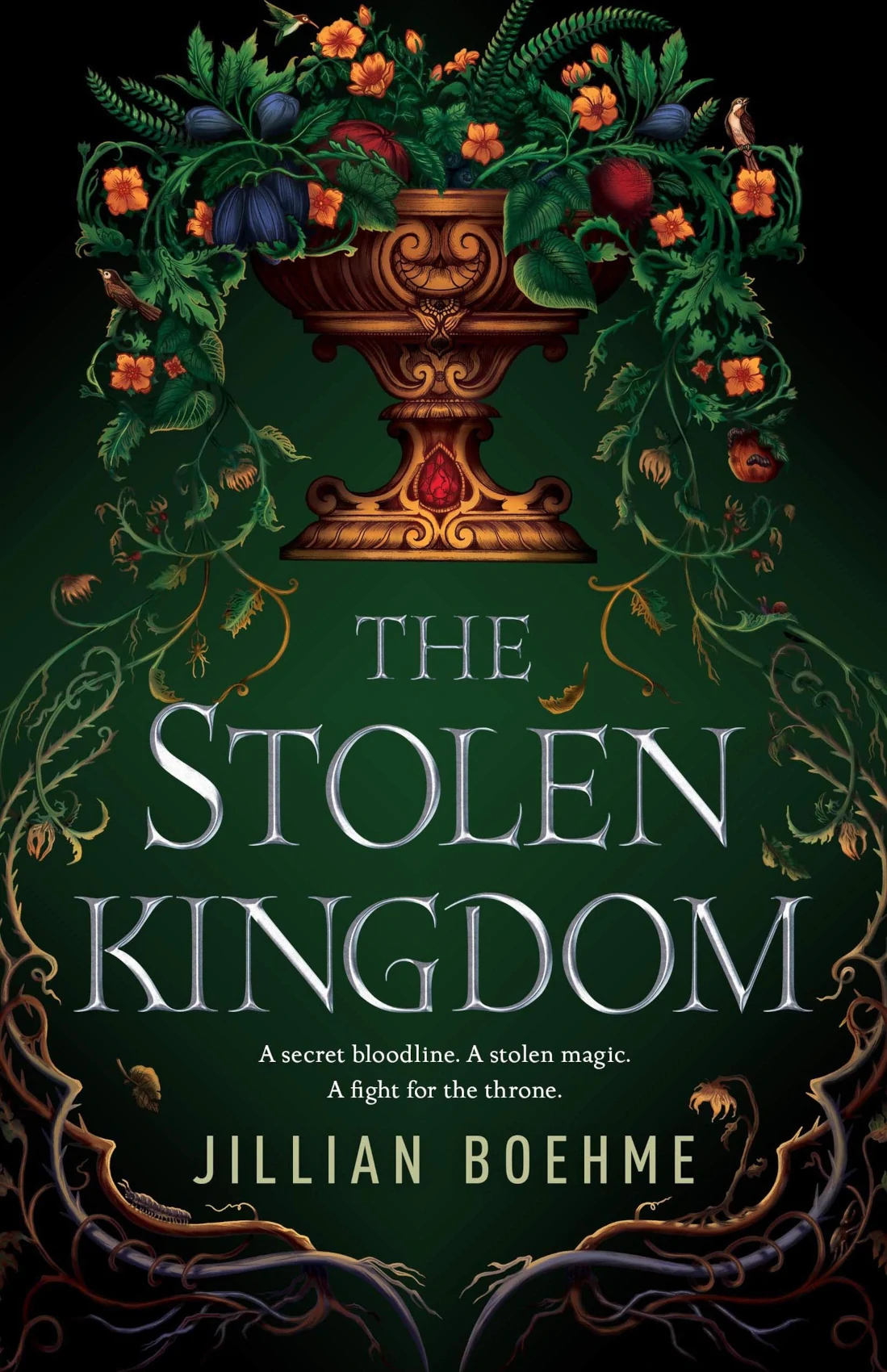
A Review of The Stolen Kingdom by Jillian Boehme
Words By Jaclyn Morken
Spoiler Warning!: This review contains extensive spoilers for Jillian Boehme’s novel, The Stolen Kingdom.
Published March 2, 2021 by Tom Doherty Associates
What happens to magic when it’s been stolen? How might that power manifest in those who were never meant to have it—and in those from whom it was taken? And when circumstances throw the descendants of those lines together, how can they overcome the century-old conflict they inherited? Jillian Boehme asks these questions in her new YA fantasy, The Stolen Kingdom.
The story opens in Perin Faye, a kingdom ruled by the corrupt Thungrave royals, with both a royal wedding and a war on the horizon. First, we meet Maralyth (Mara) Graylaern, the headstrong seventeen-year-old daughter of the kingdom’s most prized vintner. She soon discovers that she is the long-lost heir to the throne when rebels kidnap and extort her into participating in a coup that will make her queen. Next, we meet Prince Alac Thungrave, nineteen years old and second in line to the throne—and the magic—that his family stole from Mara’s ancestors. He hates his role as the overlooked son and wants nothing more than to leave behind the magic corrupting his father and elder brother, dreaming instead of a peaceful life making wine. When Mara must enter into a plot to murder the royal family, she must pose as a noble to gain entrance to the elder prince’s wedding, where she and Alac first meet. As the day of the coup draws ever closer, she struggles to hide her true identity and purpose from Alac as they both contend with their growing feelings for each other.
I regret to say that I found the premise of this book a lot more compelling than its delivery. Boehme has laid a lot of good groundwork here but often doesn’t follow through. More than once, I felt the story rushed through significant plot points and dwelled too long on others, with underdeveloped characters and concepts, and I found myself wishing for more depth in a lot of places. For example, the magic system feels weak. For Mara, the “rightful” heir to this magic, using this power is easy and intuitive, requiring no significant effort to wield or learn. This makes her power seem limitless and unearned. In contrast, Alac’s father and brother seem to only hoard the magic for themselves, claiming to have “tamed” a darkness that used to terrorize all of Perin Faye. Furthermore, many of the characters do not extend beyond their tropes, and as a result, I often found it difficult to invest in their development arcs. There are also frequent references to the Thungraves’ oppressive rule of Perin Faye throughout the story—including Mara once calling out Alac’s ignorance and privilege—but we witness very few examples of such.
That being said, I do feel this book has some strengths. The descriptions, particularly of the food, are lush and vivid, such as “soft-boiled eggs in a nest of sautéed mushrooms, several thin slices of ham, and two steaming buns dotted with sage . . . served with butter and several jams in beautiful, cut-glass jars.” I also appreciate that so much of the novel centers around vineyards and gardens, which serve as good touchstones for a story in which magic can either give life or wither anything it touches. Boehme does a good job of building the suspense as well, particularly in the last one hundred or so pages of the book, when she raises the stakes even higher and the characters must face darker, more complex challenges.
But what intrigues me most about this book is the concept that the Thungraves are hoarding stolen magic, and I admire how Boehme chose to use that concept as a plot device. Outsourcing the central conflict to the magic and describing corruption as the heirloom of a terrible wrongdoing—corruption as a tangible, malleable thing—is an interesting choice. It allows Boehme to create a (more or less) peaceful resolution to the conflict—that is, a resolution that doesn’t come about through a climactic battle, which I think should happen more often in the fantasy genre. Mara and Alac must find resolution through restoration, not retribution.
This is the kind of story that left me wishing the author had given me more because the story has so much promise. And while this book wasn’t as satisfying as I’d hoped, I still plan to keep an eye on Boehme in the future. This is a writer with potential, and I’m interested to see what comes next.